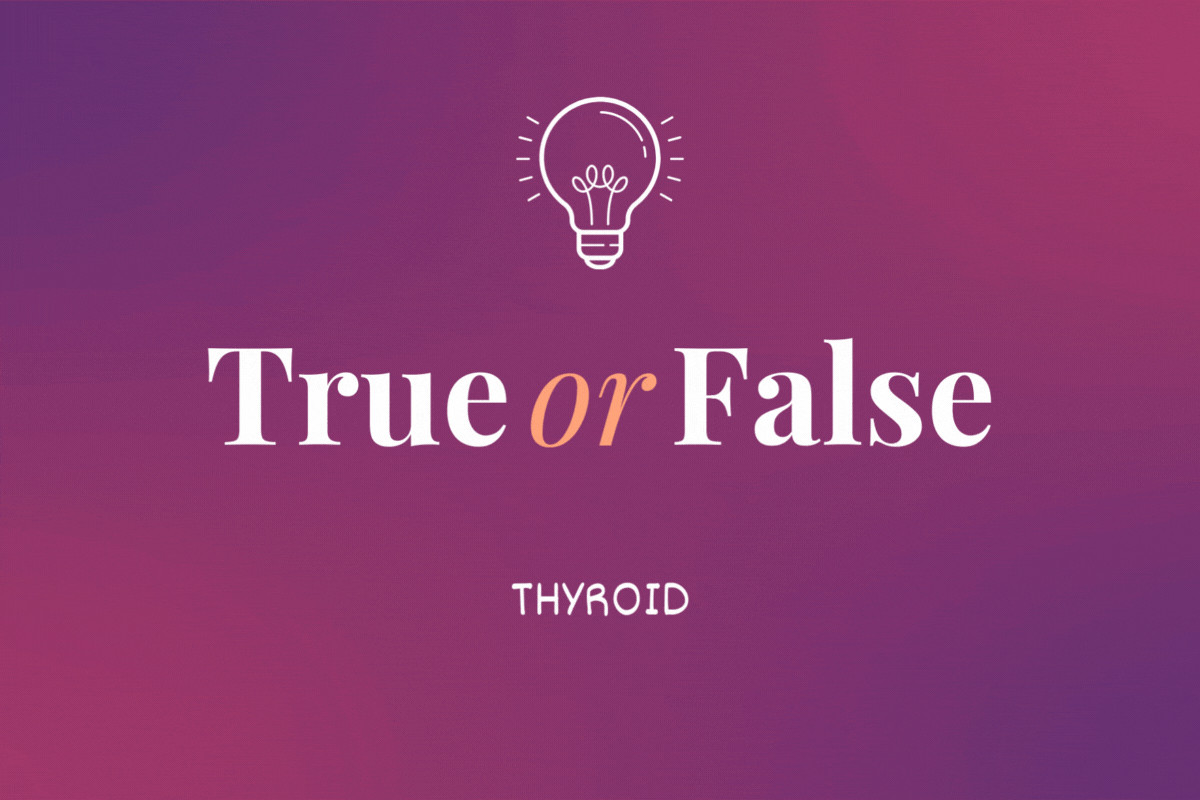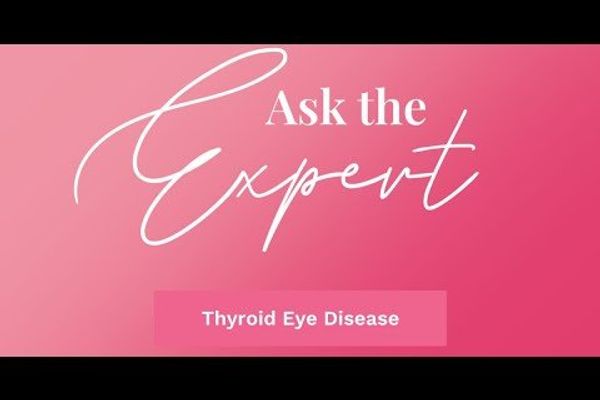Who'd have thought such a tiny gland in your neck could affect so many aspects of your life and health and sometimes cause so much trouble? This butterfly-shaped gland sits just below your voice box and sends thyroid hormones throughout your body, having an enormous effect on your health and day-to-day wellness.
Because these hormones profoundly affect your metabolism in many ways, when your thyroid kicks back and underproduces or goes into overdrive producing too much, the effects are unpleasant to say the least.
Women More Likely to Have Thyroid Disease
Once again, we're special! One in eight women will develop thyroid problems in her lifetime. Too little or too much thyroid hormone can cause disrupted menstrual cycles and ovulation and problems getting pregnant and during pregnancy, and can lead to early menopause. However, thyroid disease, especially hypothyroidism, is more likely to develop after menopause.
Hypothyroidism
Hypothyroidism is an underactive thyroid. It's not making enough hormone to keep your system running well. These symptoms may develop over time as your metabolism slows:
- Feeling cold when other people do not
- Constipation
- Muscle weakness
- Weight gain, even though you are not eating more food
- Joint or muscle pain
- Feeling sad or depressed
- Feeling very tired
- Pale, dry skin
- Dry, thinning hair
- Slow heart rate
- Less sweating than usual
- A puffy face
- A hoarse voice
- Bulging eyes
- More than usual menstrual bleeding
- High LDL or "bad" cholesterol, which can raise your risk for heart disease
As you look at the list, you can see how these symptoms could be misread as menopause-related.
The most common cause of hypothyroidism in the U.S. is Hashimoto's disease, in which the immune system mistakenly attacks the thyroid. Often when this occurs, a person will have a normal thyroid stimulating hormone (THS) level but will have symptoms of being hypothyroid. The way Hashimoto's is detected is by checking thyroid antibody levels. If they are elevated, many endocrinologists will recommend a small amount of thyroid hormone to help reduce symptoms.
With Hashimoto's thyroiditis and other causes of hypothyroidism, the thyroid becomes inflamed and does not make enough hormones to keep up with the demands of the body.
Hypothyroidism Treatment
A hypothyroid condition can be treated successfully by taking a synthetic thyroid hormone as a replacement.
Hyperthyroidism
Graves' disease, an autoimmune illness, is often the cause of an overactive thyroid. Again, these symptoms arise over time. As your metabolism increases, you may notice these symptoms:
- Weight loss, even if you eat the same or more food (most but not all people lose weight)
- Eating more than usual
- Rapid or irregular heartbeat or pounding of your heart
- Feeling nervous or anxious
- Feeling irritable
- Trouble sleeping
- Trembling in your hands and fingers
- Increased sweating
- Feeling hot when other people do not
- Muscle weakness
- Diarrhea or more bowel movements than normal
- Fewer and lighter menstrual periods than normal
- Changes in your eyes that can include bulging of the eyes, redness or irritation
Hyperthyroidism Treatment
Your health care provider can advise a range of treatment depending on your symptoms and the cause of your hyperthyroidism. Treatments include:
-
Medication
- Antithyroid medicines block your thyroid from making thyroid hormone. These drugs do not cause lasting damage to the thyroid.
- Beta-blockers block the effects of thyroid hormone on your body. These medicines can be helpful in slowing your heart rate and treating other symptoms until one of the other forms of treatment can take effect. Beta-blockers do not reduce the amount of thyroid hormones that are made.
-
Radioiodine
- This treatment kills the thyroid cells that make thyroid hormones. Often, this causes permanent hypothyroidism.
-
Surgery
- Thyroid surgery removes most or all of the thyroid. This may cause permanent hypothyroidism.
Read more about Signs There's Something Wrong With Your Thyroid.
Thyroid Cancer
During an annual exam, your health care professional will check the thyroid for enlargement and for the presence of nodules. If there are nodules present, it's unlikely that there is cancer, but an ultrasound and perhaps a biopsy may be necessary.
About three times as many women get thyroid cancer as men. The number of women with thyroid cancer is also rising, but this is mainly due to better detection. Surgery alone can be a cure for thyroid cancer if the cancer is small and has not spread to lymph nodes.
Thyroid cancer is more common in women who:
- Are between the ages of 25 and 65
- Had radiation therapy to the head or neck, especially in childhood, to treat cancer
- Have a history of goiter (an enlarged thyroid)
- Have a family history of thyroid cancer
Because the symptoms of thyroid disease are so varied, including some very common complaints, blood tests, the radioactive iodine uptake test, thyroid scans, ultrasound and biopsy are all tools your health care provider can use to diagnose thyroid disease. The good news is that most thyroid problems can be successfully treated, including most cancers.
This blog originally appeared on Nurse Barb. Barb Dehn is a women's health nurse practitioner, award-winning author and nationally recognized health expert. She practices with Women Physicians in the Silicon Valley of California.
- Fast Facts: Everything You Need to Know About the Thyroid ›
- Hashimoto’s Disease Brought the Curtain Down on My Career As a Soloist in the NYC Ballet - HealthyWomen ›
- Thyroid Eye Disease 101 — TED/Graves's Eye Disease - HealthyWomen ›
- I Lost My Singing Career to Thyroid Cancer but Found My Voice - HealthyWomen ›
- Is Your Thyroid Making You Gain Weight? - HealthyWomen ›
- Facts About Your Thyroid - HealthyWomen ›
- Hypothyroidism Caused Problems for My Body and Mind - HealthyWomen ›
- What Is Graves Disease? - HealthyWomen ›







